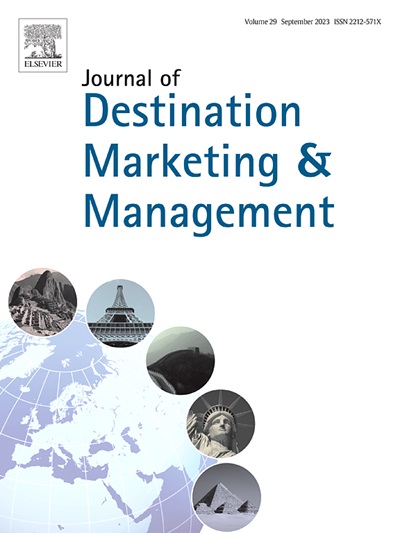A longitudinal study of the impact of the Tokyo 2020 Olympics on Japanese residents' support: The mediating role of social well-being
IF 7.4
2区 管理学
Q1 HOSPITALITY, LEISURE, SPORT & TOURISM
引用次数: 0
Abstract
Mega sporting events can generate significant impacts on the host destinations. The Tokyo 2020 Olympics (“Tokyo 2020” hereafter) was a unique case as the pandemic minimized the impact of international tourism. In this situation, how could residents' perceived event impacts be associated with support intention for future event hosting? The purpose of this study is to examine the relationships between event impact perceptions of Tokyo 2020, residents' social well-being, and their support toward future event hosting. Three-wave time-lagged data were gathered from residents in Japan (T1 = approximately one month prior to the event; T2 = immediately after the event; and T3 = four months after the event; N = 296). The results of the structural equation model showed that no event impact perceptions were directly associated with residents' support, measured four months after the event. However, positive economic and environmental impacts (T1) indirectly via residents' social well-being (T2) influenced their support for future event hosting (T3). The findings highlighted that the event impact perceptions and residents' support for event hosting can be mediated by temporarily activated social well-being. The findings are particularly important when people have difficulties finding connections to society (i.e., the pandemic in this study). A sense of social well-being is the key to enhancing residents’ support for future event hosting.
东京 2020 年奥运会对日本居民支持率影响的纵向研究:社会福祉的中介作用
大型体育赛事会对主办地产生重大影响。东京 2020 年奥运会(以下简称 "东京 2020")是一个独特的案例,因为大流行病将国际旅游业的影响降至最低。在这种情况下,居民感知到的赛事影响如何与未来赛事举办的支持意向相关联?本研究旨在探讨东京 2020 的事件影响感知、居民的社会福利及其对未来事件主办的支持之间的关系。研究收集了日本居民的三波时滞数据(T1 = 活动举办前约一个月;T2 = 活动举办后不久;T3 = 活动举办后四个月;N = 296)。结构方程模型的结果表明,在事件发生四个月后的测量中,居民对事件影响的认知与支持没有直接联系。然而,积极的经济和环境影响(T1)通过居民的社会福利(T2)间接影响了他们对未来举办活动的支持(T3)。研究结果强调,活动影响认知和居民对活动主办的支持可以通过暂时激活的社会幸福感来调节。当人们难以找到与社会的联系时(如本研究中的大流行病),这些发现尤为重要。社会幸福感是增强居民对未来活动主办支持的关键。
本文章由计算机程序翻译,如有差异,请以英文原文为准。
求助全文
约1分钟内获得全文
求助全文
来源期刊
CiteScore
18.60
自引率
3.60%
发文量
46
审稿时长
43 days
期刊介绍:
The Journal of Destination Marketing & Management (JDMM) is an international journal that focuses on the study of tourist destinations, specifically their marketing and management. It aims to provide a critical understanding of all aspects of destination marketing and management, considering their unique contexts in terms of policy, planning, economics, geography, and history. The journal seeks to develop a strong theoretical foundation in this field by incorporating knowledge from various disciplinary approaches. Additionally, JDMM aims to promote critical thinking and innovation in destination marketing and management, expand the boundaries of knowledge, and serve as a platform for international idea exchange.

 求助内容:
求助内容: 应助结果提醒方式:
应助结果提醒方式:


